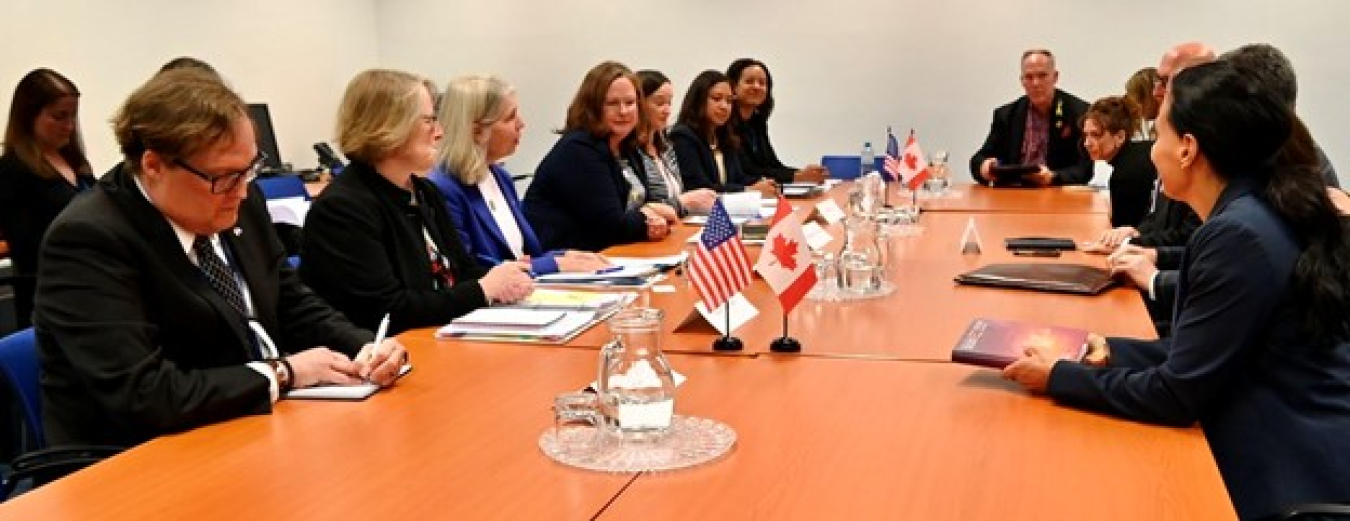Senior leaders from around the U.S. government attended the 68th International Atomic Energy Agency (IAEA) General Conference (GC) September 16-20 in Vienna, Austria, to advance nuclear energy, safety, security, safeguards, emergency preparedness and response, peaceful uses, nonproliferation, and other nuclear-related issues.
National Nuclear Security Administration
November 4, 2024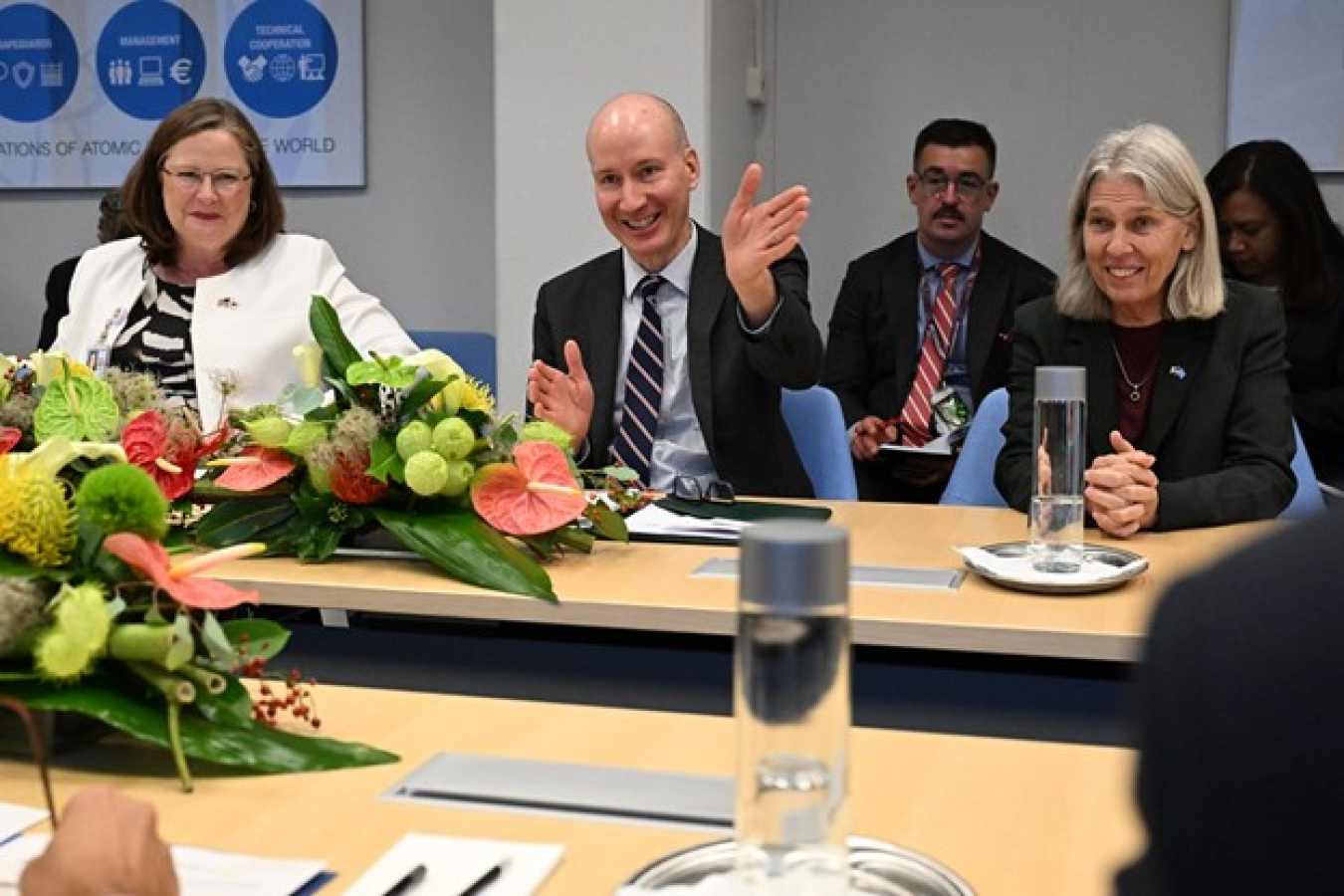
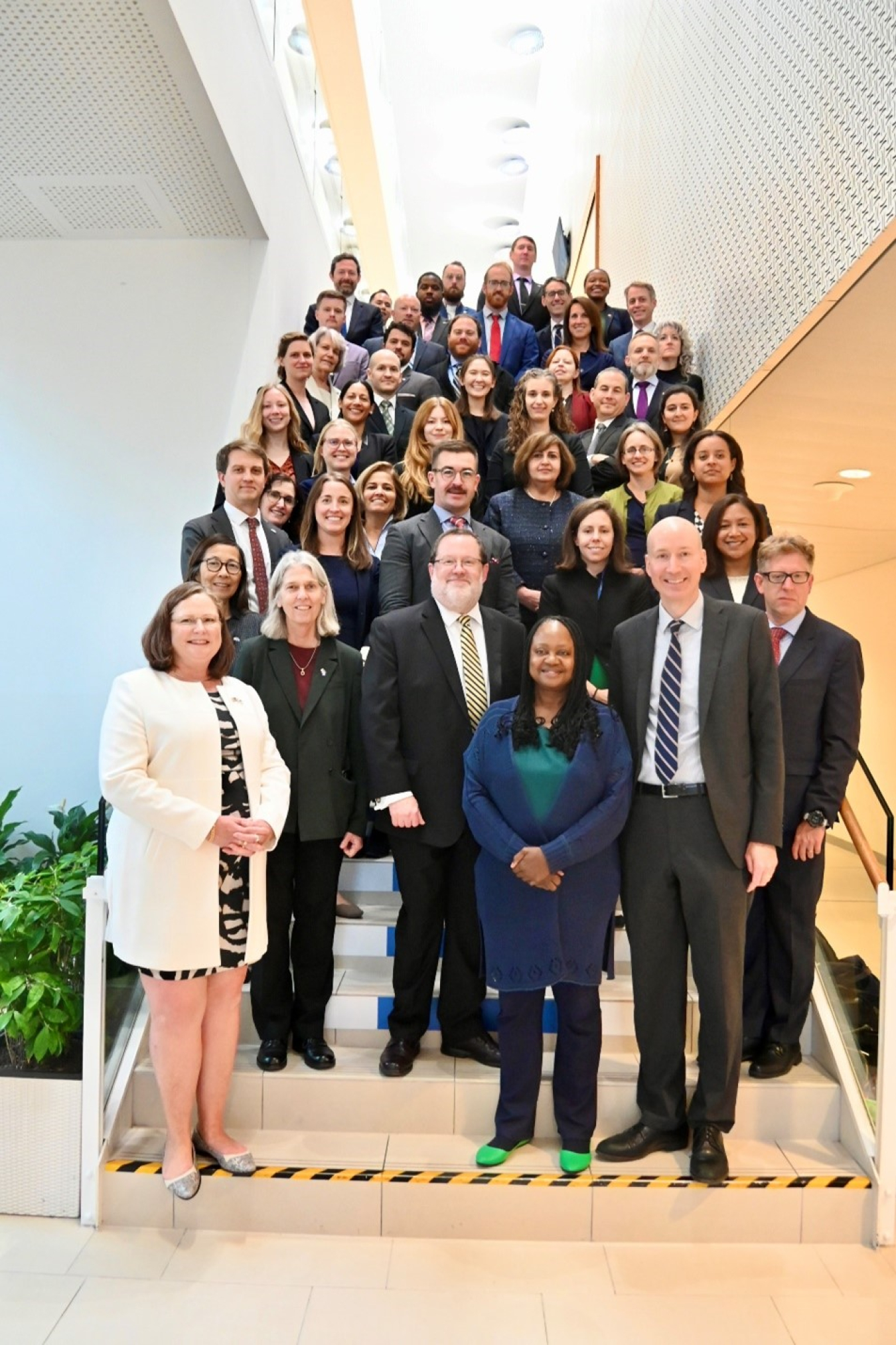
Senior leaders from around the U.S. government attended the 68th International Atomic Energy Agency (IAEA) General Conference (GC) September 16-20 in Vienna, Austria, to advance nuclear energy, safety, security, safeguards, emergency preparedness and response, peaceful uses, nonproliferation, and other nuclear-related issues.
U.S. Department of Energy (DOE) Deputy Secretary David M. Turk led the U.S. delegation to the annual IAEA GC. Jill Hruby, Administrator of the National Nuclear Security Administration (NNSA); Laura Holgate, U.S. Ambassador to the Vienna Office of the United Nations and U.S. Permanent Representative to the IAEA; Bonnie Jenkins, Ambassador and Under Secretary of State for Arms Control and International Security; and Christopher Hanson, Chair of the Nuclear Regulatory Commission, joined Deputy Secretary Turk to advance nonproliferation and promote peaceful uses of nuclear technology.
At this year’s IAEA GC, nearly 3,000 registrants including delegates from 150 of the 178 IAEA Member States and representatives from nongovernmental and international organizations met, exhibited in booths, hosted side events, and discussed the strategic mission and objectives of the Agency.
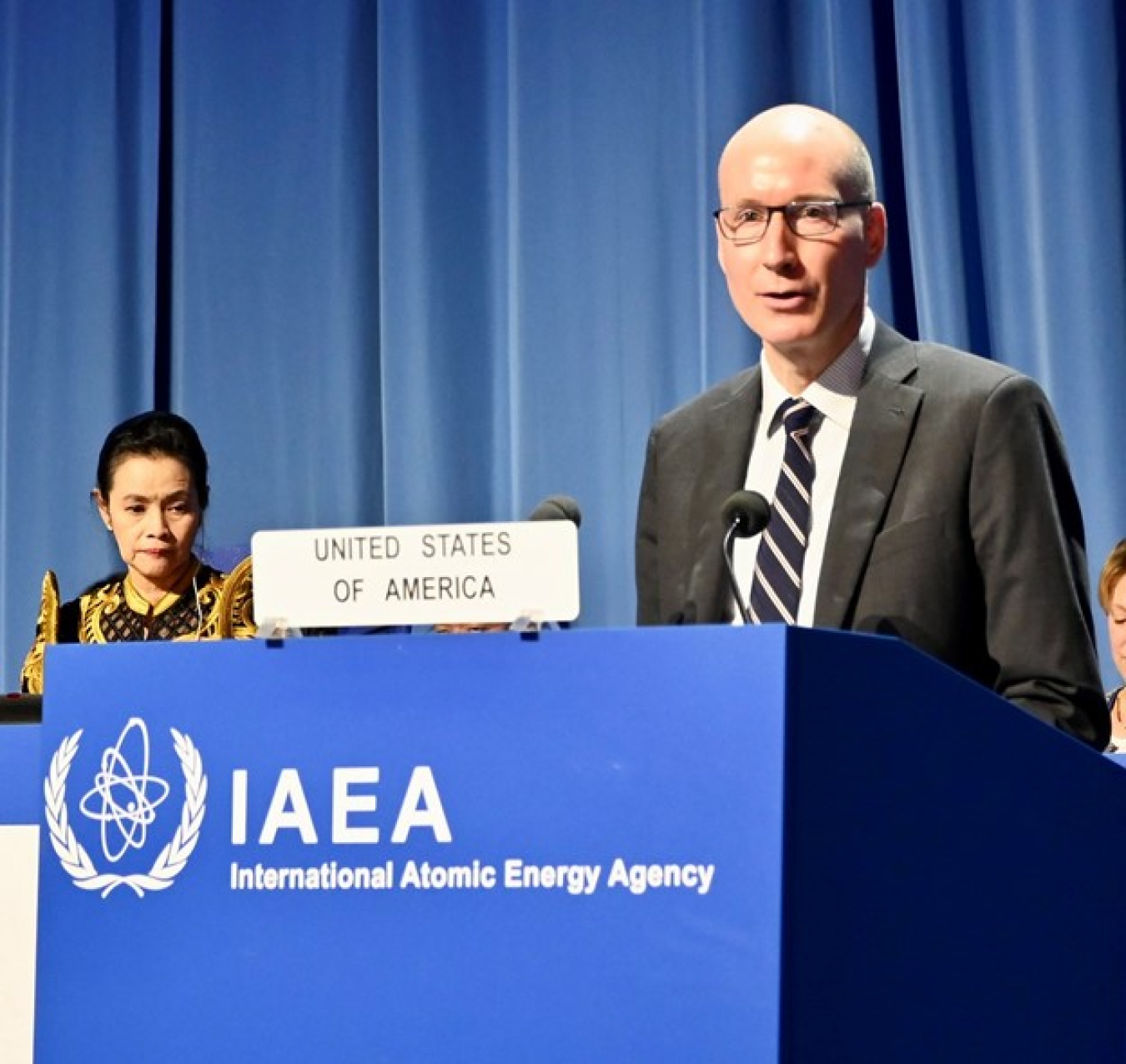
With a conference-wide theme of “Atoms for the Future,” America’s message was one of hope. As Deputy Secretary Turk shared in the U.S. national statement, “this year, we are looking forward, to the potential for nuclear technologies to help solve many of our shared challenges. Together, we can build a future defined by partnership and peace—fueled by the awesome power of the atom.”
At the conference, the United States:
- Encouraged all IAEA Member States to join those who have signed the joint statement on the Role of Nuclear Security in Harnessing the Power of Nuclear Energy.
- Noted our success in reinvigorating our civil nuclear industry, including the second new reactor in as many years entering commercial operation and new provisions to accelerate licensing and deployment of advanced nuclear reactors.
Together, we can build a future defined by partnership and peace—fueled by the awesome power of the atom.”
- Highlighted how the U.S. civil nuclear industry is providing products and services to partner countries to achieve their civil nuclear goals, while adhering to the highest nonproliferation standards.
- Celebrated investments in transformative technologies, including fusion energy and the catalyzing breakthroughs in our labs, and unprecedented partnership with a range of cutting-edge companies.
- Deepened the U.S. commitment to the IAEA’s Rays of Hope program, which is expanding access to cancer diagnosis and treatment around the world. Earlier this year, the Departments of Energy and State announced an additional $6 million for this initiative at the White House Cancer Moonshot Initiative, bringing the total U.S. contribution to more than $55 million.
- Issued two Joint Statements with like-minded countries, one encouraging all IAEA Member States to join the Convention on Supplementary Compensation for Nuclear Damage, and the other encouraging countries to commit to secure a reliable nuclear fuel supply chain.
- Signed a Joint Statement with Japan’s Ministry of Education, Culture, Sports, Science and Technology announcing the completion of high-assay low-enriched uranium fuel fabrication for the Kyoto University Critical Assembly Conversion.
- Signed a Statement of Intent on technical cooperation and exchange of information in the area of civil nuclear energy between the Department of Energy and the Lithuanian Energy Institute.
- Signed a Memorandum of Understanding on bilateral cooperation in the field of nuclear energy between the Department of Energy and the Ministry of Climate Policy and Green Growth of the Netherlands.
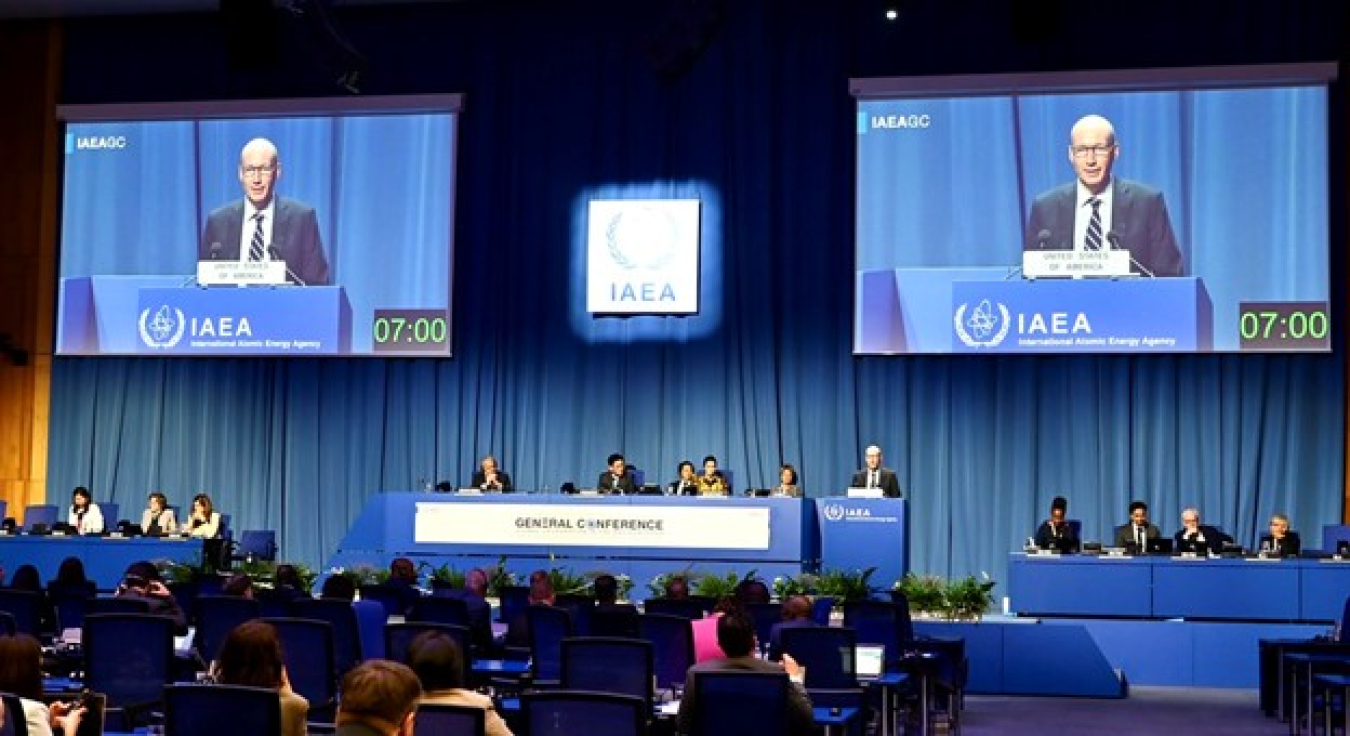
Other notable DOE-related events included:
- A joint event with Norway covering international progress on highly enriched uranium minimization with panel presentations from Norway, Kazakhstan, Nigeria, and Canada.
- A multilateral event on emergency preparedness and response with Morocco, France, and the United Arab Emirates.
- A discussion with professors from Kindai University in Japan on converting its research reactor from highly enriched uranium to high-assay low-enriched uranium fuel.
The GC is always a valuable opportunity to coordinate internationally on shared goals for energy security, nonproliferation, emergency preparedness, and more.
- An event with representatives from DOE’s national laboratories on the future of small modular reactors.
- Multiple events focused on nuclear energy, including on deployment considerations for advanced reactors, on the Africa region’s readiness for civil nuclear cooperation, and an event with the International Framework for Nuclear Energy Cooperation and Women in Nuclear Global on gender equality and increasing the effectiveness of international collaboration.
- An event with Kazakhstan’s National Nuclear Center highlighting the conversion of the IVG.1M reactor in 2022 and current joint efforts to convert the IGR Reactor to high-assay low-enriched uranium fuels and eliminate its highly enriched uranium fuel.
“Healthy partnerships are vital to making sure the power of the atom is used for the benefit of humanity to achieve energy security, and prosperity,” Administrator Hruby said. “The GC is always a valuable opportunity to coordinate internationally on shared goals for energy security, nonproliferation, emergency preparedness, and more.
A key goal of the U.S. delegation at the GC was to meet with Member States, industry, and other key stakeholders from around the world to advance shared priorities related to nuclear matters. This year, in addition to hosting and co-hosting many side events, the United States held bilateral meetings with representatives of the IAEA, Armenia, Belgium, Canada, Czechia, El Salvador, Estonia, the European Commission, France, Germany, Israel, Italy, Japan, Kazakhstan, Lithuania, the Netherlands, Norway, Poland, the Republic of Korea, Singapore, South Africa, Sweden, Ukraine, and the United Kingdom.
